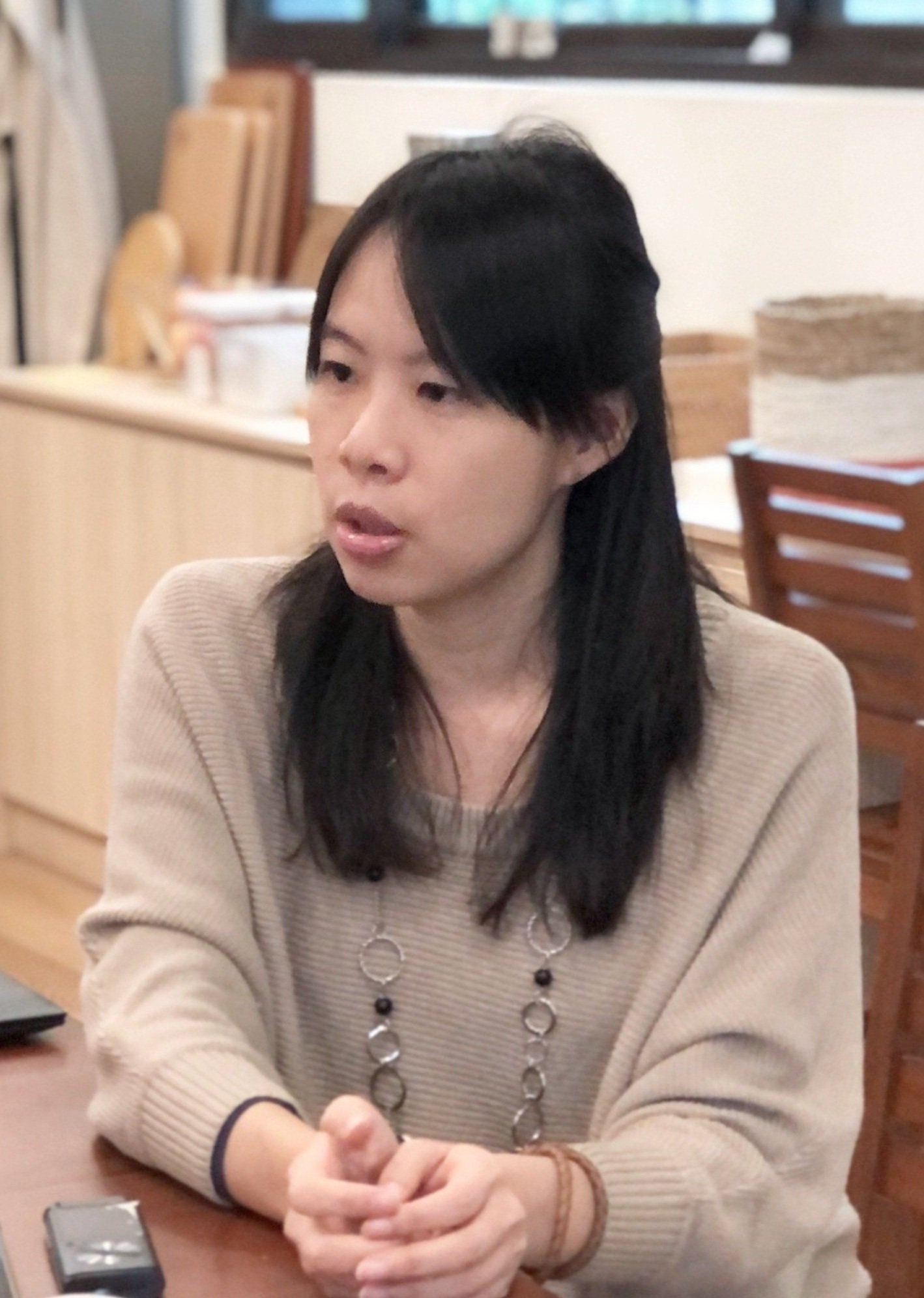Susan pays meticulous attention and records the small details of students' daily activities. "Observation is a crucial part of Montessori education, and I guide students based on their interests," she explains.
Observation and companionship
What is most impressive about Y2MAC is the level of dedication shown by the guides. They hold nothing back and invest almost all of their energy into the students, observing them with a level of detail that even the students' own parents might not match.
The guides are constantly thinking about how to help the students with their self-development and growth as well as how the curriculum plan should be adjusted accordingly.
Susan keeps a notebook that is almost the size of an A3 paper, in which she writes down her daily observation of each student. She notes every detail, whether it be related to their learning or interactions with others. "Observation is an essential part of Montessori education," she explains.
After observing the students' states, what should or should not be done is a big question. For example, Fankan noticed that some students would feel proud and superior because they finished their work first or thought they knew more than others.
He chose to observe further and understand the student's "pride." He found that the sense of pride was a learning motivation for one student. It did not lead him to look down on others, and he would help other students who did not understand.
Therefore, Fankan said, "I'll leave it alone for now," and if it does not cause trouble for other students, he will continue to observe and see how it goes. Leaving things alone for now is also a kind of wisdom.
In Y2MAC, how does the team ensure that all the adults know the status of every student? To ensure all information about student affairs can be kept timely and transparently, the team cleverly uses “Notion,” a software where records of individual students can be searched easily for further analysis and around which discussions can be centered in the curriculum meetings.
"We conduct a comprehensive assessment for each student every term, and there will be two assessments for math goals, mainly to help students set up their goals. We usually help students think about the issue by designing some questions for them to better understand themselves, which is more important than achieving any goal," said Fankan.
Apart from observing and recording from the sidelines, teachers and students spend a lot of time together in their daily life.
Since students are not allowed to bring mobile phones, everyone gathers in the living room for free activities after school, such as playing the guitar, reading, and playing board games—the enjoyment of real interaction amongst each other.
Jan shares the importance of this after-school time at the residence: "We hope that adolescents have more opportunities for face-to-face communication. Real friends are better than virtual friends. Because there are no smart phones here in our school, attention will naturally be focused on the "people" in front of them.
Adolescents need close and deep interpersonal connections, to share their feelings with friends. Whether it is joy or fear, knowing that they are not alone, even if they are comfortable and quiet together."
The administrative team is the strong support
It is the whole-hearted care for each student that allows for such meticulous observations and adjustments. "The teachers work extremely hard and have exceeded my expectations, which makes me proud ," says Jan.
For parents, whose children are attending the first boarding Montessori middle school in Taiwan, are living in the residence away from home, and cannot be contacted by cellphone anytime, there is bound to be some concern.
Jan, Fankan, and Susan are grateful that the parents choose to trust the school. Fankan jokes that the parents are really brave. This trust comes not only from detailed parent briefing during in-depth sessions before enrollment and monthly parent-teacher meetings, but also from the administrative team who constantly handles numerous details and communications behind the scenes.
Freya, who is responsible for operations, has all the parents' contact information in her phone. If parents have any problems, they can contact the school immediately.
"At the beginning, everyone messaged me frequently. As the understanding between parents and teachers gradually grew, it has become much less now." Freya's high EQ and patience have become the guides' big assistance, allowing them to focus on the needs of the students and curriculum planning.
Freya, who is responsible for operations, has all the parents' contact information in her phone. If parents have any problems, they can contact the school immediately.
From small things like electricity and water bills, it is the work of the administrative staff to ensure the school can operate smoothly.
Fortunately, with the assistance of project manager Amy, the system can be built from scratch, allowing Freya to have time to think about the future growth of the school.
At this moment, she is also thinking about how to better support the development of every team member, how to attract more adventurous people to join the team, and how to make the workplace more female friendly and inclusive !
During the interview, it was strongly felt that the principal, guides, and administrative staff have fully dedicating themselves, putting all of their hearts and minds into the students.
Behind the seemingly relaxed classroom scenes, there are countless meticulous plans and preparations.
How can students who want to learn erhu and play guitar take music classes together? What are the meanings conveyed in drama? How can the adolescent community prepare lunches that everyone can enjoy within the budget?
For every on the team of Y2MAC, which was established just a year ago, it is a learning experience. Jan pointed out that in New Zealand, it takes adolescents about one to two years to truly adapt to Montessori education. Considering the more authoritative education system in Taiwan, she estimated that students may need two years to truly get used to asking questions and engaging in self-directed, project-based learning.
In a blink of an eye, new students are about to join the Y2MAC family for the upcoming school year. The current 7th graders will become seniors.
Their new task will be to guide visitors and new comers and to introduce the adolescent community to them. Jan has already begun planning her new project, with a focus on the recent COVID-19 pandemic, guiding students to learn about the history of plague and epidemics.
In addition, students will start new small businesses, including making organic soaps and selling them to learn business logic in the real world. Those of you reading this article may be the audience, to whom they intend to sell!
A brand new Montessori middle school landscape is unfolding in Zhudong, with each person holding a different paintbrush yet working together to create the future—a future where students can be themselves, be independent, be willing to take risks, explore the unknown, and be happy to work with others!
Written by Yu-Hsiu Su
Images provided by Y2MAC
Translators: Robert Fox, Jen Hsu/Graduate Institute of Translation and Interpretation, NTNU



